Kenneth Atchity's Blog, page 140
May 10, 2017
FREE TELESEMINAR May 18th!! “Selling Your Story to Hollywood: A Conversation with a Movie Producer”
THURSDAY, MAY 18 at 7pm ET, 6pm CT, 5pm MT and 4pm PT

Register below. You'll receive a confirmation e-mail with the information you need to participate.
“Selling Your Story to Hollywood: A Conversation with a Movie Producer”Hollywood producer Ken Atchity will talk with Sandra Beckwith of Build Book Buzz about the book-to-screen process...What's involved?How can you increase the odds that you'll sell your story to Hollywood?What is Hollywood buying from authors and why?Plus much more!
First Name *
Email *
Three Important DetailsIt will last no more than an hourWe'll record it and send the replay link to everyone who registersYou'll be able to ask questions
 About Your Host, Sandra BeckwithSandra Beckwith is an award-winning former publicist who now teaches authors how to market their books. Three groups have recognized her BuildBookBuzz.com site as an outstanding resource for authors, so you know her advice is author-tested.
About Your Host, Sandra BeckwithSandra Beckwith is an award-winning former publicist who now teaches authors how to market their books. Three groups have recognized her BuildBookBuzz.com site as an outstanding resource for authors, so you know her advice is author-tested.
© 2016 | Build Book Buzz


Register below. You'll receive a confirmation e-mail with the information you need to participate.
“Selling Your Story to Hollywood: A Conversation with a Movie Producer”Hollywood producer Ken Atchity will talk with Sandra Beckwith of Build Book Buzz about the book-to-screen process...What's involved?How can you increase the odds that you'll sell your story to Hollywood?What is Hollywood buying from authors and why?Plus much more!
First Name *
Email *
Three Important DetailsIt will last no more than an hourWe'll record it and send the replay link to everyone who registersYou'll be able to ask questions
 About Your Host, Sandra BeckwithSandra Beckwith is an award-winning former publicist who now teaches authors how to market their books. Three groups have recognized her BuildBookBuzz.com site as an outstanding resource for authors, so you know her advice is author-tested.
About Your Host, Sandra BeckwithSandra Beckwith is an award-winning former publicist who now teaches authors how to market their books. Three groups have recognized her BuildBookBuzz.com site as an outstanding resource for authors, so you know her advice is author-tested. © 2016 | Build Book Buzz

Published on May 10, 2017 10:49
May 8, 2017
Dennis Palumbo on Between the Lines
Barry Kibrick talks with Dennis Palumbo, renowned psycologist and oscar nominated screen writer, about his new book, . Now, with his new book, "Phantom Limb", and delve deep into the psychology of life through his writing.

Published on May 08, 2017 00:00
May 6, 2017
Curious Hart Reviews Kenneth Atchity's The Messiah Matrix



The Messiah Matrix is similar in genre and plot to The Da Vinci Code.
The main themes involve question~answer and problem~solution on a local level because they are resolved within the context of the story. However, they do touch on global issues.
The characters are interesting and only slightly clichéd. The best thing about the protagonists is that they display a sense of humor.
The language varies between fresh and formulaic, but that is probably due to the technical information necessary to understand the plot and the conflict.
The narrative is brisk and engaging, and there is no graphic or gratuitous sex, violence, or profanity. There are no noticeable or distracting grammatical or typographical errors.
The conflict of the story is based on a social compact that demands community participation and obedience from its members, those communities being the Roman Catholic Church and the Society of the Jesuits. Both are bound by rules and secrets that set them in opposition to one another.
Overall, I found Messiah Matrix a satisfying read and recommend it to fans of The Da Vince Code.
One thing I noticed in the unfavorable reviews was that some of the reviewers were offended by the subject matter; they responded to it as if the book were non-fiction. They disagreed with its basic premise; one reviewer, in his ire, revealed the whole plot of the book. (I don’t think the author appreciated that.)
H.L. Mencken wrote: “I believe that an artist, fashioning his imaginary worlds out of his own agony and ecstasy, is a benefactor to all of us, but the worst error we can commit is to mistake his imaginary worlds for the real one.” What I Believe
Despite Mr. Atchity’s careful documentation of facts and evidence, I did not mistake Matrix Messiah for the real world, and that is most likely why I enjoyed reading it.
Read more

Published on May 06, 2017 00:00
May 4, 2017
Story Merchant Books May Amazon eBook Deals
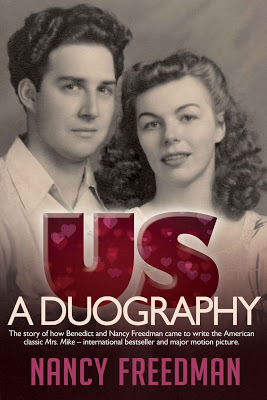 Us, a Duography by Benedict Freedman
Us, a Duography by Benedict Freedman FREE May 4 - 8!
The story of how Benedict and Nancy Freedman came to write the American classic MRS. MIKE, still in print in the original edition after sixty-four years, an international bestseller, major motion picture starring Dick Powell and Evelyn Keyes, and excerpted in high school classes all over the country.
www.amzn.com/B01EK9C5AY
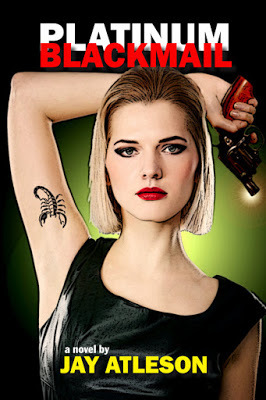 Platinum Blackmail by Jay Atleson
Platinum Blackmail by Jay Atleson FREE May 11 - 15!
A story of high-tech power, sex, Wicca, murder, and love that displays the intimate psychological thought processes of a somewhat self-consumed man, forced to mature and realize one of life’s important lessons: be careful what you wish for since nothing is as it seems.
ww.amzn.com/B00984N5CE
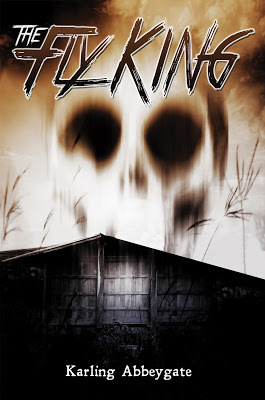 Karling Abbeygate's Debut Horror Novel The Fly King
Karling Abbeygate's Debut Horror Novel The Fly King FREE May 18 - 22!
Deft of wit and wicked as hell, Karling Abbeygate's The Fly King is a seductive and sinister debut.
--Richard Christian Matheson
Rachel lives a mundane life in Chicago. She doesn't know she has a murderous brother living in the slums of East London who is coming for her. She doesn't know about the ancient curse of the Fly King or the unthinkable events about to take place. What she does know is that she's being inexplicably drawn clear across country to a desolate little town in the wooded mountains of Washington and that her boyfriend Gavin is not happy about it.
www.amzn.com/B01N2MM3DO
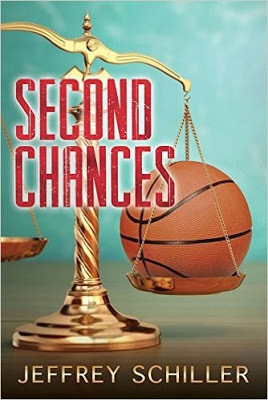
Second Chances by Jeffrey Schiller
FREE May 25 - 29!
Set against the backdrop of a sport awash in billion dollar television contracts, multi-million dollar salaries for coaches and professional players, and kickbacks to agents and boosters, Second Chances explores the consequences of a corrupt and secretive culture where everyone is susceptible to the lure of fame and fortune…and also to the threat that their secrets and machinations will be revealed.
https://amzn.com/B015DFZ6ZA

Published on May 04, 2017 00:00
May 1, 2017
Why authors shouldn’t obsess over one-star reviews

Authors, prepare yourself for the inevitable one-star review. In the publishing industry, one-star reviews are practically a rite of passage.
And no one is immune. Whether you’ve got 10 best-sellers to your credit or it’s your first book, you can expect at least a single one-star review.
There are the one-star Amazon reviews that make you roll your eyes.
“If possible, I’d give this pile of garbage zero stars.”
“Not really of much use for me. Seems like just a lot of useless information to fill up a book.”
“The best part of this book is the cover photo.”
Then there are the one-star Amazon reviews that have a little more substance.
“If you know nothing at all and are not good at Googling this might be a good choice.”
“I really didn’t like this book. I don’t understand why it’s so highly rated. I found the characters to be either overly dramatic, willfully ignorant, or utterly apathetic. They were just too extreme.”
“I was expecting a great deal of sociological analysis that relate to the author’s personal experiences but instead got a 272 rambling, inconsistent, humble brag of a memoir sprinkled with a few facts and statistics for good measure.”
What’s the difference between the two?
You can’t learn anything from the bad reviews that seem nonsensical or just plain mean.
But if one-star reviewers consistently comment that they were disappointed because your book didn’t include information they expected — and each bad review refers to the same missing information — you should update the description to forewarn readers: “This book is not about ‘X.’ ” (And perhaps add that missing information to a revised edition.)
Or, if reviewers repeatedly comment that the book is poorly written, is so riddled with typos that they couldn’t finish reading it, or that the dialogue was stilted, it’s time to take note.
Sometimes the feedback is useless, sometimes it’s helpful, right? The challenge is to be objective enough to see it for what it is.
3 reasons to embrace one-star reviews
But even useless or mean-spirited one-star reviews serve a purpose. Here are three reasons to embrace the lowly one-star review:
1. Readers aren’t stupid.
When you see a one-star review that says, “I bought this as a gift but it arrived too late,” what’s your reaction?
I’m going to go out on a limb here and suggest that you probably don’t think any less of the book or its author. Perhaps you think less of the reviewer for reviewing the delivery schedule, not the book’s contents.
Readers can see past silliness as easily as authors can.
2. They make the four- and five-star reviews believable.
Be honest: When you see a book with 60 reviews and they’re all five stars, does a quiet little voice in your head say, “Really? Not even one four-star comment? Or a couple of threes?”
That’s because you’re smart enough to know that this is a subjective business. You might hate what I love, and vice versa. So it seems kind of odd when everybody agrees that it’s a great book.
A 4.6, review average, especially when there are lots of reviews, is more credible than 5.0. (Because, as noted in point 1, readers aren’t stupid.)
3. They can provide feedback that helps you improve the book or its description.
As noted already, if you get the same negative feedback from several people, pay attention. Consider taking action on it.
For example, if you’re charging $14.99 for a 90-page paperback and you’ve got a slew of one-star reviews saying the book isn’t worth $14.99, it’s time to evaluate price versus perceived value.
Look for patterns in those negative reviews to see what you can learn from them. Sometimes, it’s nothing. But sometimes it’s something — even a big something. You can use that feedback to your advantage.
Read more

Published on May 01, 2017 00:00
April 29, 2017
Dornsife Dialogues: Civility in Public Discourse
The inaugural Dornsife Dialogues event offers students, faculty and staff a conversation on the tenor and evolution of political discourse.
As the nation witnesses a serious erosion of respect in political discussion, students, faculty and staff gathered to hear USC Dornsife Dean Amber D. Miller and Robert Shrum, Carmen H. and Louis Warschaw Chair in Practical Politics and director of the Jesse M. Unruh Institute of Politics, address the question: “How has public discourse on critical topics come to be so combative and is a return to civility possible?”

As the nation witnesses a serious erosion of respect in political discussion, students, faculty and staff gathered to hear USC Dornsife Dean Amber D. Miller and Robert Shrum, Carmen H. and Louis Warschaw Chair in Practical Politics and director of the Jesse M. Unruh Institute of Politics, address the question: “How has public discourse on critical topics come to be so combative and is a return to civility possible?”

Published on April 29, 2017 00:00
April 28, 2017
How Traditional Publishing Has Changed and What That Means to a Writer Starting Out

“Traditional” (aka “legacy”) publishing is a relatively recent term to describe the powerful, primarily New York-based publishers that are still the object of most new writers’ aspirations. The term is used today in opposition to “self-“ or “direct” publishing, which is what happens when a book is published without the intervention of the companies that have served as literary and commercial gatekeepers for decades.
Then and Now
Twenty years ago, there were three dozen independent “major publishers,” which meant an author’s representative like myself could submit a writer’s work to any or all of them. Should more than one or two be interested, you would start a bidding war that could be very lucrative for the author. Today, though a few companies like Grove-Atlantic and W. W. Norton manage to survive independently, most of those three dozen majors are owned by the Big Five trade book publishers. They were known as the “Big Six” until Random House merged with Penguin in 2013.
Today’s Big Five are:
News Corporation, owned by Australian-born Rupert Murdoch, includes Avon Books, Broadside Books, Ecco Books, HarperCollins, Harper Business, Harper Perennial, Newmarket Press, and William Morrow, among others.
Hachette Book Group (HBG), which is in turn part of the French conglomerate Lagardère. HBG is home to Center Street, Faith Words, Forever, Grand Central, Little, Brown, and Orbit, among others.
Holtzbrinck, the German multinational, owns Farrar, Straus and Giroux; Henry Holt; Macmillan; Picador; St. Martin’s Press; and Tor/Forge—along with many others.
Penguin Random House, itself owned by another German company, Bertelsmann, owns hundreds of imprints and formerly independent publishing houses like Ballantine, Berkley, Broadway, Crown, Dutton, Knopf, Penguin, Putnam, and Random House, to name only a few.
CBS Corporation (formerly Viacom) owns Simon & Schuster, as well as sister companies Atria, Free Press, Gallery Books, Pocket Books, Scribner, Threshold, and Touchstone, as well as the Folger Shakespeare Library.
This massive consolidation means that publishers no longer make decisions the way they used to.
Author Opportunities
In the old days, less than 10 years ago, most major publishers were driven by highly literary, visionary editors who made gut decisions to give starts to new voices who are “name writers” today—Stephen King, Anne Rice, Michael Crichton, Joyce Carol Oates, Kurt Vonnegut Jr., etc.
Back then, the author’s representative submitted a manuscript to editors, usually simultaneously to more than one (and as many as 20). If an editor fell in love with the book, they fought to acquire it by pitching it to a board made up of other editors. If the board approved (meaning that one or two other editors read the manuscript, too, and also liked it), they authorized an offer to the author’s rep.
If several editors from the different houses responded with an offer, you had yourself an auction—and potentially quite a payday for the author.
After they acquired the book, a publishing house worked with its marketing department to make it visible, helping to build an author’s career and providing them with a literary “home,” hopefully for years to come.
Marketing Takes Over
Of course, the editors are still there today—but whether they admit it or not, they’re now more or less under the thumb of the marketing department. They must present P&Ls (“profit and loss statements”) to the acquisitions committee, which is dominated by marketing people, before a book can be taken on, no matter how wonderful they think it is.
Our new author must already have a national track record and “platform” (network of likely buyers within proven reach). Otherwise, his or her book has little chance with the marketing folks whose focus is not on the future of reading but on this year’s bottom line.
What makes it worse is the ever-expanding use of Nielsen BookScan, which tracks actual point-of-sale transactions using bar codes. It’s hard to fudge how many copies of the author’s previous book sold when faced with hard mechanical evidence of actual sales. And a lack of sales means no new book deals.
Sure, once in a while an outstanding manuscript can slip by the marketing department if the editor is courageous enough to bet his or her job on the book. One or two misses a year may be allowed, but if an editor has too many books that don’t “earn out,” or make back what was paid to produce them, including the advance, he or she is in serious jeopardy.
Because of the massive consolidation of imprints under the Big Five, auctions are increasingly rare for new authors—unless you happen to be a nationally or internationally known politician, celebrity, or Nobel Prize laureate. Those folk have platforms—existing admirers who might very well buy their books.
Authors’ reps spend more and more time and effort on helping their clients develop a platform, and focus on making a strong marketing presentation to increase the likelihood of their books selling more than enough copies to break even.
What’s an Author to Do?
Given this situation, what’s an upcoming platform-weak writer to do? More and more, writers are turning to direct publishing. As an author’s representative for 25 years, I was so disturbed by the increasing difficulty of getting new authors accepted in New York that, four years ago, I started my own imprint for voices that I believed demanded an audience.
That way, as a producer, I had good books in hand to take to Hollywood agents, fellow producers, studios, broadcasters, and financers. I make sure that our books look every bit as good as “traditional” books. Take that as a warning to proceed to direct publishing with care, lest you put a book into the market that doesn’t look like a good book, that isn’t edited like a good book, and that isn’t marketed like a good book.
Yet when all is said and done, it’s an exciting new frontier for authors. You don’t have to let your fate be determined by traditional publishers. If you direct publish your book and promote it well, guess what?
The traditional publishers will come a’ knockin’.
Go for it!
About the Author
 Story Merchant Ken Atchity is a Yale PhD writer, literary manager, and producer who’s written more than 20 books, sold hundreds of clients’ books to major publishers, and produced more than 30 films for television and cinema. His most recent book, Sell Your Story to Hollywood: Writer’s Pocket Guide to the Business of Show Business, just appeared from his imprint Story Merchant Books. He’s also partnered with Daniel Hall to produce an in-depth webinar on the subject, Real Fast Hollywood Deal. He can be reached at atchity@storymerchant.com.
Story Merchant Ken Atchity is a Yale PhD writer, literary manager, and producer who’s written more than 20 books, sold hundreds of clients’ books to major publishers, and produced more than 30 films for television and cinema. His most recent book, Sell Your Story to Hollywood: Writer’s Pocket Guide to the Business of Show Business, just appeared from his imprint Story Merchant Books. He’s also partnered with Daniel Hall to produce an in-depth webinar on the subject, Real Fast Hollywood Deal. He can be reached at atchity@storymerchant.com.
Published on April 28, 2017 00:00
April 26, 2017
Introducing Sandra Beckwith's “365 Daily Book Marketing Tips”
 Every day, a short and to-the-point tip from one of the many book marketing categories covered in this amazing resource will arrive in your inbox. Always actionable, each pithy tip will give you something specific you can do every day to support your book.
Every day, a short and to-the-point tip from one of the many book marketing categories covered in this amazing resource will arrive in your inbox. Always actionable, each pithy tip will give you something specific you can do every day to support your book.What’s more, almost half of the tips include links to more information online so you get even more valuable instruction!
Here’s what you get in “365 Daily Book Marketing Tips” for your investment of less than a dollar:
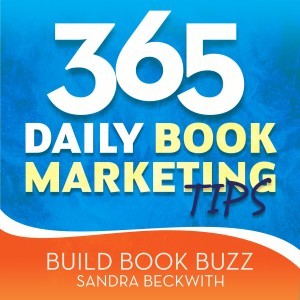 One book marketing tip delivered via email every day for 365 consecutive days (many with links to more detailed information online!) starting immediately.Tested, proven, book marketing advice in 15 topic categories, from Amazon sales to reviews to social media to speaking.Access to years and years of book marketing experience – in your inbox every day.Each tip is no more than two sentences – just the quick nudge you need to act on something specific that day (or to remind you that you need to do something every day to promote your book).
One book marketing tip delivered via email every day for 365 consecutive days (many with links to more detailed information online!) starting immediately.Tested, proven, book marketing advice in 15 topic categories, from Amazon sales to reviews to social media to speaking.Access to years and years of book marketing experience – in your inbox every day.Each tip is no more than two sentences – just the quick nudge you need to act on something specific that day (or to remind you that you need to do something every day to promote your book).Here are just a few examples of what you’ll get in your email every day for a year. These are actual tips from the daily series:
Re-evaluate the categories your book is listed in on Amazon periodically because they change. You might need or want to change one of yours. https://kdp.amazon.com/help?topicId=A200PDGPEIQX41When sharing a link to your blog posts, use the specific post link, not a generic blog page link. You want domainname.com/blog-post-title, not domainname.com/blog.Want a book club to read your book? Get it into libraries. Many club members are borrowers, so library borrowing is often a prerequisite for a club selection.When you find a website that reaches the same audience as yours, check the links on blog rolls, resources pages, etc., for more websites like it. Connect with the owners and comment on their blogs so you start building your network.When you are offering your book for free or for a sale price, check out the list of 100 websites that will let you list and promote your book. http://bit.ly/1LVh5VIDiscover what other books were purchased by people who bought your book with the cool Yasiv tool. http://www.yasiv.com/ Here are a few suggestions to help you make the most of what you’ll receive every day:
• Remember that these are tips, not articles. It’s more like smartphone app content than blog content.
• If you like a tip that doesn’t include a link to more information online, use Google to find the specifics you want.
• Not every tip will apply to your situation and your book. You might look at three in a row and think, “Nah . . . .” That’s to be expected – and will actually make it easier for you! Be open-minded about what might work for you, but be realistic, too.
• Consider setting up a “daily book marketing tips” folder in your email software, then creating a “rule” (Outlook) or “label” (Gmail) so that each tip automatically gets moved to the folder when it arrives in your inbox.
• Create your own tips resource by setting up a master “daily book marketing tips” document in Word or Excel, then copying and pasting each tip into the file every day. Just doing something that simple with a tip will help you remember it and encourage you to take action on it.
• Block out time on your calendar every day or once a week to act on the tips that you like. If you protect the time on your calendar, you’ll make sure you have the time to take action.
Sandra offers three simple, affordable, no-brainer options that will impact your book marketing success:
99 cents for the daily book marketing tips delivered by email every day for 365 days starting immediately$9 for the PDF download with all 365 daily tips, all of the tips listed again by category, and 10 bonus tips — downloadable immediately$9.99 for both the daily reminders (you know you need them!) and the instant PDF download (most popular option)



Read more

Published on April 26, 2017 00:00
April 24, 2017
Story Merchant Books Amazon eBook Deals!
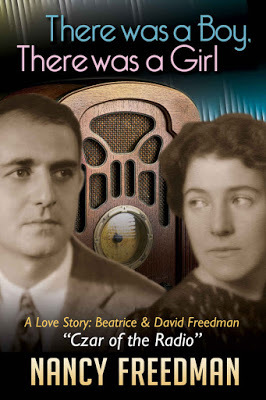 There Was a Boy, There Was a Girl by Ben and Nancy Freedman
There Was a Boy, There Was a Girl by Ben and Nancy Freedman FREE April 24 – 28!
This is the story of David Freedman, dubbed the "Czar of Radio,"who wrote and directed the top comedy shows aired in the thirties and one in one astonishing year, he also had three successful shows running on Broadway.
It is also a love story. Beatrice, child of Russian immigrants determined to get an education and become a musician, she managed to be admitted to Columbia University, paying her way by washing dishes in the student cafeteria. One day, racing to work down the university steps, she knocked down a young man with his nose in a book. This was the start of a roller-coaster life of major lows and greater heights of achievement.
www.amzn.com/B01EKB8U1K
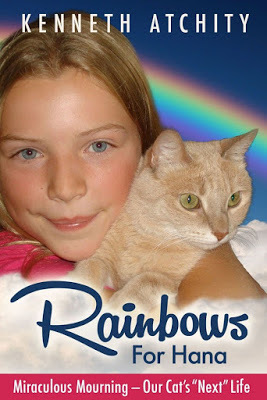 Rainbows for Hana by Kenneth Atchity
Rainbows for Hana by Kenneth Atchity FREE April 25 - 29!
When our beloved tabby flew out the window to her death, our devastation was transformed by a mysterious series of events that seemed to us like miracles.
www.amzn.com/B0077PC068
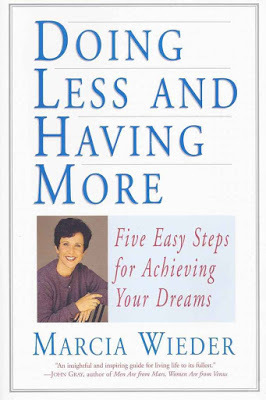 Doing Less and Having More (Million Dreams Book 3) by Marcia Wieder
Doing Less and Having More (Million Dreams Book 3) by Marcia Wieder FREE April 26 – 30!
Five Easy Steps for Achieving Your Dreams!
Reconnect to your true goals, focus on the important things in your life, dispose of unfinished business, and feel more composed, confident and competent.
www.amzn.com/B007ZDJ84E
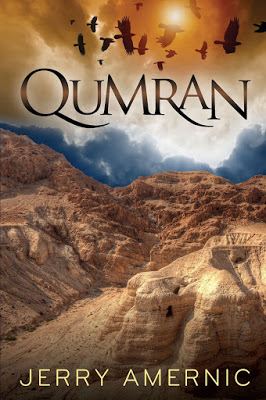
Jerry Amernic's QUMRAN FREE April 27 – May 1!
David Marr, archeologist and world authority on the Romans, has spent his life studying the Holy Land with all its violence and unrest going back to the time of the scriptures. While teaching in Jerusalem, he makes the most dramatic discovery of his life just off the shore of the Dead Sea near the site of the ancient monastic settlement at Qumran. It is something that could have huge repercussions with the potential to turn the world on its side bringing him to the forefront of the maelstrom that develops whenever science confronts religion.
www.amzn.com/B00VQPBKCK
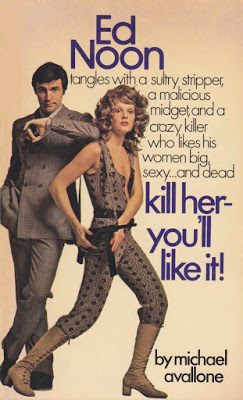 Kill Her—You’ll Like it! An Ed Noon Mystery By Michael Avallone FREE April 28 – May 2!
Kill Her—You’ll Like it! An Ed Noon Mystery By Michael Avallone FREE April 28 – May 2!The killer called himself the Gingerbread Man and his specialty was slicing strippers. He was working his way through the who's who of flesh peddlers like a hungry moth eating its way through a new suit... until it came to Ada Ven's turn.
She was the country's top peeler and she wanted to be protected... by someone with a sympathetic heart and a big reputation--Ed Noon.
www.amzn.com/B0198ZO34G

Published on April 24, 2017 00:00
April 23, 2017
Author Debbi Mack Reviews The Messiah Matrix!
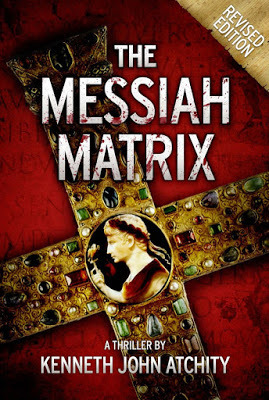


Debbi Mack’s first novel, Identity Crisis, hit the New York Times ebook bestseller list in 2011 and is the first in the Sam McRae Mystery series. Her second novel, Least Wanted, became a Kindle bestseller during the summer of 2011 in the U.S. and the U.K. The third and fourth novels in the series are Riptide and Deep Six. The main character is a Maryland lawyer-sleuth named Stephanie Ann “Sam” McRae.
Debbi has a podcast called The Crime Cafe, where she interviews crime fiction, true crime, suspense, and thriller authors.
Read more

Published on April 23, 2017 00:00



